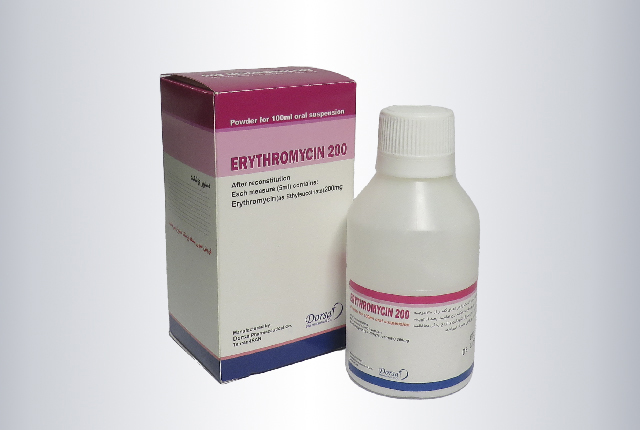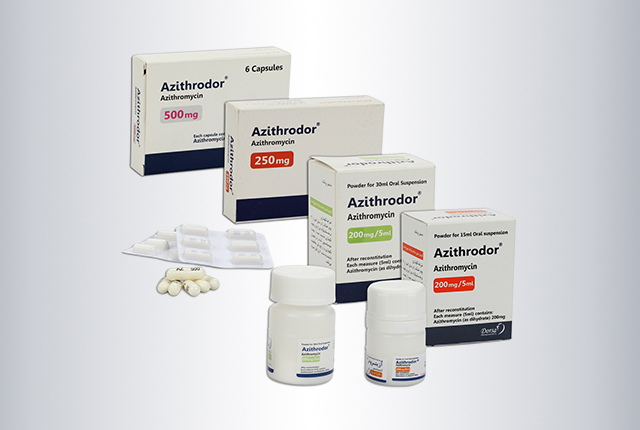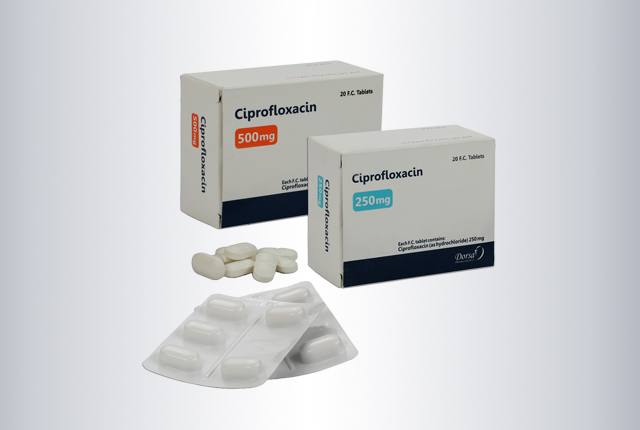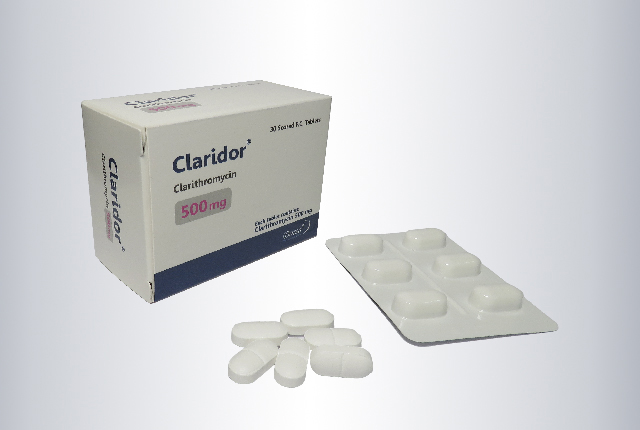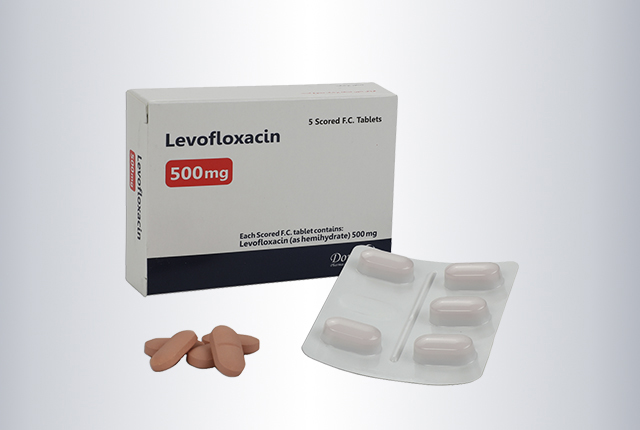Erythromycin Ethyl succinate
Here is a summary of the information about Erythromycin Ethyl succinate. If there is anything you do not understand, please ask your doctor or pharmacist to explain it to you.
- Keep out of the reach of children.
- Do not use after the expiry date printed on the label.
- FDA pregnancy category: B
- Rx only.
- Do not throw away any medicines via wastewater or household waste. Ask your pharmacist how to throw away medicines you no longer use.
Gerenal information
Patient Information
Erythromycin is an antibiotic. It's widely used to treat chest infections, such as pneumonia, skin conditions, such as acne and rosacea, dental abscesses, and sexually transmitted infections.
What Erythromycin Ethyl succinate is used for:
- Infections of the ears, nose, throat and tonsils (upper respiratory tract), chest and lungs (lower respiratory tract)
- Skin infections
- Infections of the mouth or teeth, or genitals
- It is sometimes used to increase gastric motility, or to improve the movement of contents through the gut.
Tell your doctor or pharmacist before using Erythromycin Ethyl succinate if:
- you have problems with your kidneys or liver.
- you have problems with your heart, especially changes in your heart rate.
- you have myasthenia gravis (causes tired and weak muscles).
- you are taking any other medicines.
- You are pregnant.
Know all the medicines you take. Keep a list of them with you to show your doctor and pharmacist.
Who should not take Erythromycin Ethyl succinate:
- if you are allergic to erythromycin or any of the other ingredients of this medicine
- if you or someone in your family has a history of heart rhythm disorders or an abnormality of the electrocardiogram called “long QT syndrome”.
- if you are currently taking ergotamine or dihydroergotamine, terfenadine or astemizole or mizolastine, domperidone,cisapride,or pimozide or amisulpride, simvastatin, tolterodine, lomitapide.
- if you have abnormally low levels of potassium or magnesium in your blood.
How to take your Erythromycin Ethyl succinate:
It is important that this medicine is taken only as directed, and not given to other people.
Erythromycin is usually given four times a day but in certain conditions may be given twice or three times daily. It should be given on an empty stomach (one hour before each meal and
at bedtime if the dose is four times a day).
Erythromycin can be given with or without food. It is important to give the full course of treatment. you must measure the dose accurately immediately after shaking the bottle.
What to do if you forget to take a dose:
If you miss a dose of the medicine, it can be taken as soon as you remember. Do not take it if it is less than 4 hours before the next dose. Do not double up on any doses.
While taking your medicine:
Do not stop giving the erythromycin without first checking with the doctor.
Finish the full course even if your child feels better after a few days.
Do not give erythromycin to your child if they have had an allergic reaction to a macrolide antibiotic before.
Call your doctor right away if you have:
- Severe or watery diarrhoea
- Yellowing of the skin or eyes (jaundice)
- Fever
- Abnormal heart beats or chest pain
- Allergic reaction (Stop medicine and see doctor immediately)
- Skin rash, itching or hives, swollen mouth or lips, wheezing or difficulty breathing
What to do if you take too much Erythromycin Ethyl succinate:
If you accidentally take more medicine in one day, contact your doctor or go to your nearest hospital emergency department immediately.
An overdose of Erythrocin® Tablets could cause temporary hearing loss, nausea, vomiting and diarrhoea.
Side effects:
Like all medicines, erythromycin can cause side effects, although not everyone gets them. Often side effects improve as your body gets used to the new medicine.
- Nausea (feeling sick) or vomiting
- Diarrhoea (runny poos)
- Vaginal itching, soreness or discharge (thrush)
- Changes in your heartbeat (fast or irregular)
- Signs of problems with your liver such as yellowing of the skin or eyes, dark urine, pain in the abdomen.
- Signs of an allergic reaction such as skin rash, itching, swelling of the lips, face, and mouth or difficulty breathing
Reporting of side effects:
If you get any side effects, talk to your doctor, pharmacist or nurse. This includes any possible side effects not listed here.
You can also report side effects directly via the Yellow Card Scheme at: www.dorsapharma.com/ (ADR form)
By reporting side effects, you can help provide more information on the safety of this medicine.
Product specification
| Generic name | Erythromycin Ethyl succinate |
| Dosage form | 200 mg/5ml, powder for 100 ml suspension |
| Category | Anti infective, Macrolids |
| ATC code | J01FA01 |
| Package | Box of PVC bottle of 100 ml Suspension |
| Active ingredient | Erythromycin Ethyl succinate |
| Storage | Below 30°C. Protect from light & moisture. After preparation of suspentsion, keep it refrigerated and protect from frozen. Do not keep the oral liquid for more than 7 days. |
| Shelf life | 2 years |
